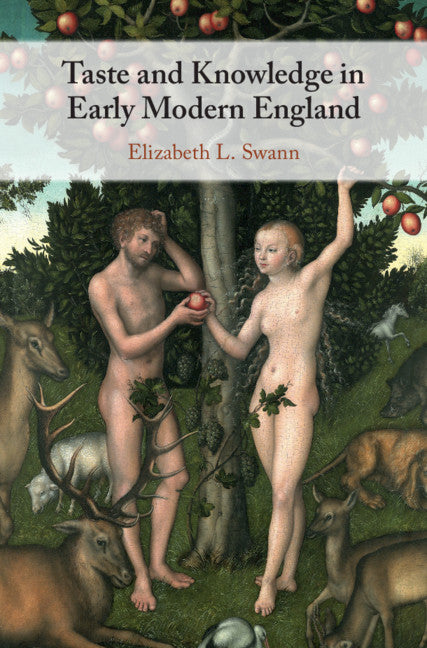Freshly Printed - allow 8 days lead
Couldn't load pickup availability
Taste and Knowledge in Early Modern England
Pioneering investigation into relationship between physical sense of taste, and taste as a term denoting judgement, in early modern England.
Elizabeth L. Swann (Author)
9781108487658, Cambridge University Press
Hardback, published 15 October 2020
280 pages
15.5 x 23.5 x 2 cm, 0.54 kg
'… captivating … Swann's historical and literary account of the many valences of taste shows how much more we have to learn. This study tackles some of the more vexing questions about early modern theories of embodiment in the period, particularly in how both literature and science influenced the reader's embodied experience of subjectivity with taste. Swann ultimately offers a convincing historical account of this neglected sense and the knowledge gained through taste.' Katherine Walker, Renaissance Quaterly
Elizabeth Swann investigates the relationship between the physical sense of taste and taste as a figurative term associated with knowledge and judgment in early modern literature and culture. She argues that - unlike aesthetic taste in the eighteenth century - discriminative taste was entwined with embodied experience in this period. Although taste was tarnished by its associations with Adam and Eve's fall from Eden, it also functioned positively, as a source of useful, and potentially redemptive, literary, spiritual, experimental, and intersubjective knowledge. Taste and Knowledge in Early Modern England juxtaposes canonical literary works by authors such as Shakespeare with a broad range of medical, polemical, theological, philosophical, didactic, and dietetic sources. In doing so, the book reveals the central importance of taste to the experience and articulation of key developments in the literate, religious, and social cultures of the sixteenth and seventeenth centuries.
Introduction
1. 'To Dream to Eat Books': of bibliophagy, bees, and literary taste
2. Anatomizing taste: practice, subjectivity, and sense in Mikrokosmographia
3. From Eve's apple to the 'Bread of Life': piety and palate in devotional literature
4. The 'Fruits of Natural knowledge': taste and the early Royal Society
5. 'Honey Secrets': erotic sweetness and epistemology
Afterword: 'The Way to Know'.
Subject Areas: Humanities [H], Literary studies: c 1500 to c 1800 [DSBD], Literature: history & criticism [DS]


